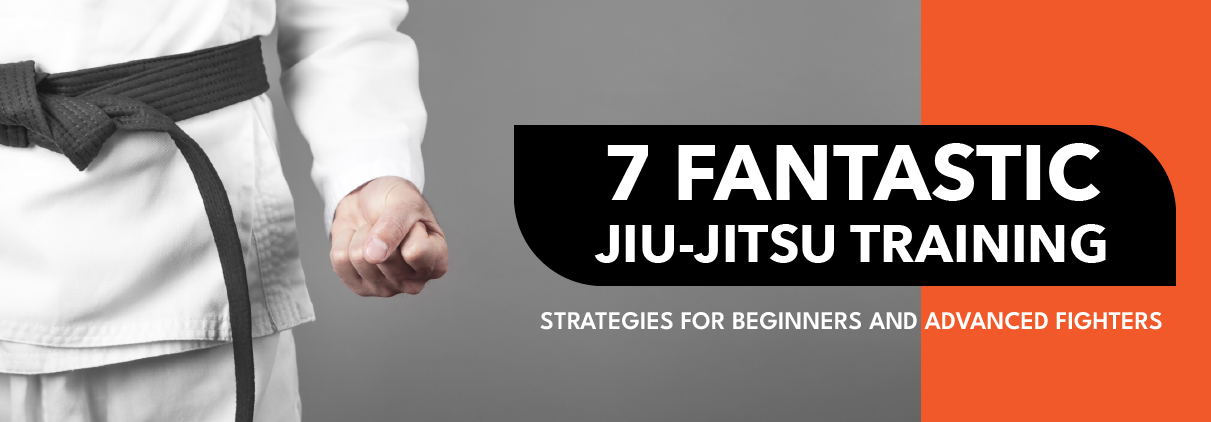7 Fantastic Jiu-Jitsu Training Strategies for Beginners and Advanced Fighters
In the area of martial arts, some domains are as lively and efficient as Brazilian Jiu-jitsu. It yields several chances for a rise in training, wellness, and self-defense, which is helpful in the real world too, regardless of whether you are just beginning or searching to improve your skills as an expert fighter. In this blog post, seven extraordinary training methods will be explored, which support newbies build strong groundwork and allow upgraded fighters to stretch the limits of their capacities
1. Master the Basics
The first and foremost step to be taken by any beginners in martial arts is to have a strong foundation by perfecting the basics. Concentration on essence methods like absconding, rollouts, and managing placement control would give a stubborn basis for complicated movements in the future. Also, any upgraded practitioners can take advantage of these crucial methods by going over them to make sure each and every shift stays pointed and efficient. Routine training of the fundamentals would improve muscle nostalgia, gain confidence, and create a strong place for more techniques.
2. Emphasize Positional Sparring
When practicing jiu-jitsu, situational sparring is one of the most essential elements of impactful training. Training methods from particular placements, such as shield, top control, and cross-body control are included in this. Practitioners can concentrate on improving getaways, taps, and shifts in a regulated space, by detaching those situations. Every newbie has to spend time getting settled in these placements, slowly skill-building to read and defend a challenger’s motions. Upgraded practitioners could take advantage of situational sparring to correct their attacking methods, improve progressive methods, and get ready for the unexpected characteristics of competitive games.
3. Incorporate Live Sparring
For newcomers, regulated sparring sessions with expert pairs could help create a sense of duration, gap, and in-the-moment decision-making. In contrast, advanced practitioners get advantages from routine live sparring by evaluating their skillset contrary to various opponents, enabling them to find places for development and additionally perfect their methods.
4. Focus on Physical Conditioning
Productive jiu-jitsu practice not only depends on technique; it is also based on how well you are in your physical condition. Your execution on the mat would be delivered by power, versatility, and stamina. If you are a beginner, you should implement an effective fitness schedule in your routines like exercises for body weight, aerobics, and flexing to create a stubborn body. Upgraded or experienced fighters may include personalized programming techniques, such as extreme interval practice or rebellion workouts to improve strength and toughness.
5. Study and Analyze Matches
Every practitioner learns about tactics in the game, approaches in competition, and duration by analyzing other professional matches or looking at videos of their sparring classes. Newbies can get clarity on complicated methods by perceiving how experienced fighters manage diverse moments, on the other hand, advanced fighters can assess their execution to find mistakes and places for improvement. Including video review in your practicing session can expose clever shades, methods, and tactics that are frequently not used in the time of live classes, significantly improving your whole game.
6. Develop Mental Toughness and Strategy
The mental toughness in fighting is valuable for novices and for the pros. Resilience means challenging yourself, challenging mistakes, and a discipline for continuous improvement. Stress training, having clarity in goals, and practicing success visualization are mental habits that can add to your mental game. For high-level fighters, this means creating elaborate strategies and counter-strategies that opponents cannot keep up with.
7. Engage with the Community
When it comes to jiu-jitsu training, bonding with practicing partners and coaches, as well as fellow enthusiasts, gives a basis for support and learning. For new guys, experienced practitioners are an invaluable resource with fellow pros, on the other hand, experienced fighters give input and open their own eyes. Be accountable, and motivated and be in the community by doing classes, seminars, or online forums along the dealings of Jiu-jitsu It is not only compensating your technique, but this supportive circle of like-minded individuals also adds layers to your experience in the art.
Utilize these seven amazing training tactics and you will be able to reap the fruits of your Jiu-jitsu practice whether you are a beginner or an experienced fighter. Some reasons Dallas is the best place for Jiu-Jitsu training are a strong sense of community, excellent academics, and access to world-class instructors that foster fundamentals mastery, live sparring time, physical training focus, match analysis, mental discipline, and benchmark against support system. This helps set the bar for life, you will be getting better on and off the mat by training in this environment.
